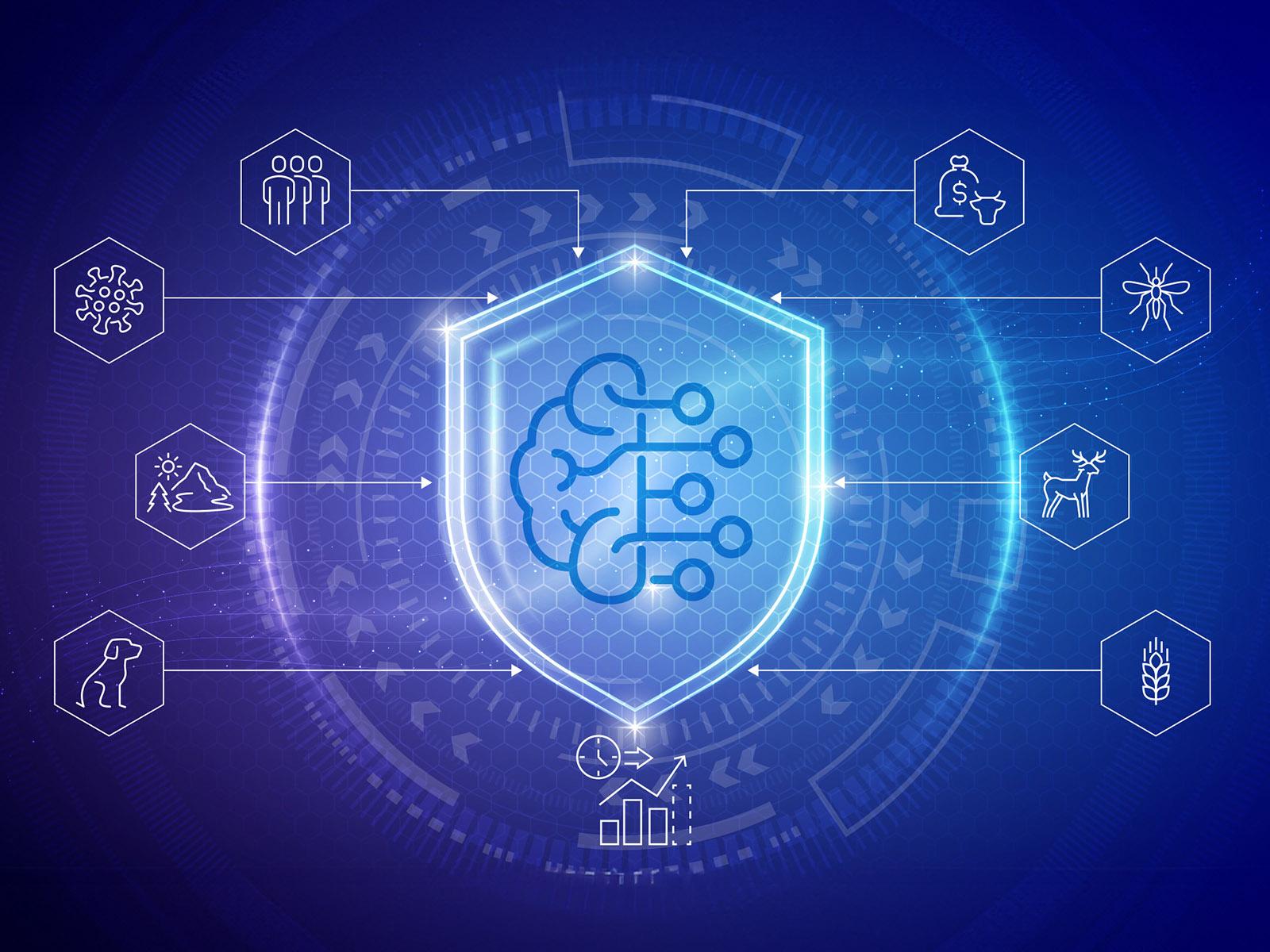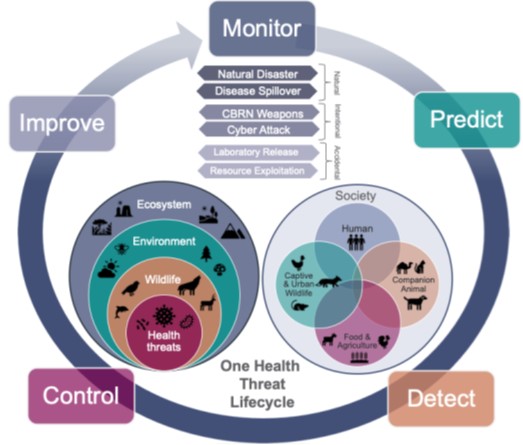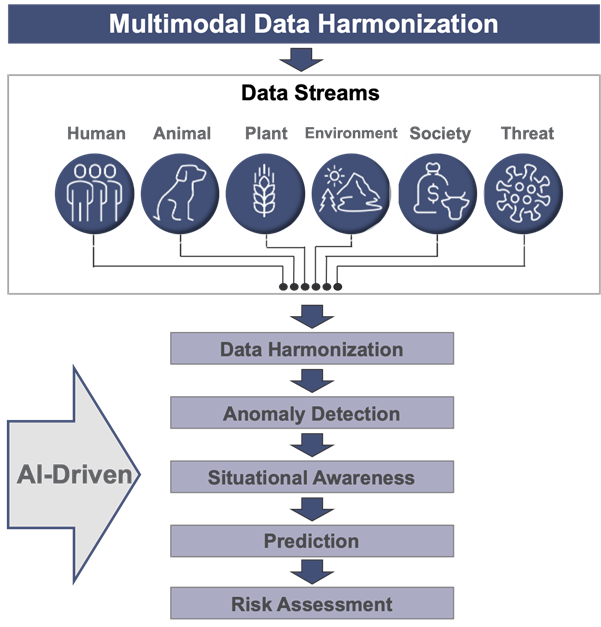
AI-Driven One Health Security
Reducing threats to health, economic, social, and national security

Illustration by Shannon Colson | Pacific Northwest National Laboratory
Reducing threats to health, economic, social, and national security

Illustration by Shannon Colson | Pacific Northwest National Laboratory
Artificial intelligence (AI) is revolutionizing the science of health security by enabling predictive analysis, accelerating research, and enhancing the integration of data across human, animal, plant, and environmental health domains. AI-Driven One Health Security activities at Pacific Northwest National Laboratory (PNNL) are exploring new ways to disrupt health threats through state-of-the-art data science and engineering, science-based decision-making, and communication tools.
As thought leaders in operational AI and One Health, PNNL scientists are tackling scientific challenges and collaborating with agencies around the world to optimize health security.
“One Health” represents the integration of data from human, animal, plant, and environmental health sectors to improve situational awareness, early warning, and decision-making. For decades, PNNL has leveraged its AI expertise to forecast real-world events. Today, we bring this capability to One Health, transgressing the boundaries of data access, harmonization, and analysis to protect health, while increasing food safety and national security.
At PNNL, researchers are working to rapidly predict, detect, characterize, report, mitigate, and share information on threats of national and international significance. Through resources like the Center for AI, PNNL is advancing fundamental research and building trustworthy AI-based tools outfitted with state-of-the-art models, data, and hardware ready to tackle health security challenges.

The behavior, health, and security of humans, society, animals, agriculture, and the environment are all intimately connected through complex interrelationships. Focus at the national level, like the National One Health Framework to Address Zoonotic Diseases and Advance Public Health Preparedness in the United States and the 2025 National Farm Security Action Plan, emphasizes the importance of the One Health approach to the security of our nation. AI can capitalize on these cause-and-effect relationships, increasing the ability for early warning and mitigation of national security threats.

With expertise in data science and engineering, infectious diseases and health, plant and environmental science, and cyber and chemical-biological defense, PNNL’s interdisciplinary teams of scientists are uniquely positioned to understand trends and drivers in this evolving field and be responsive to this dynamic threat.
Intertwined with AI, engineering, and domain expertise, One Health can better leverage a collaborative, multisectoral, and transdisciplinary approach from local to global levels to achieve optimal health and security results.